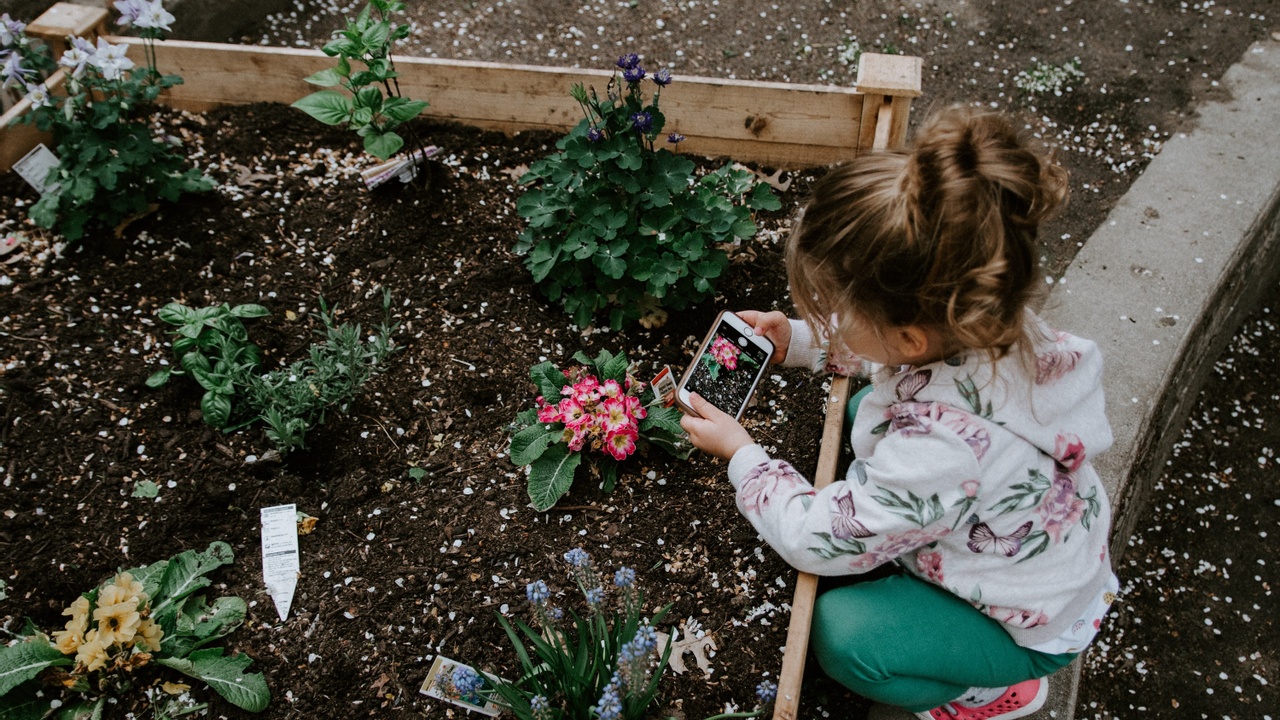Why does gardening make us happy?

Have you noticed that spending time in nature is a great way to enhance your physical and mental wellbeing? Well, you are not alone! There is a reason that gardening and walking outdoors and spending time in nature is such a lasting activity that people keep coming back to - and especially during the COVID-19 pandemic.
Are you growing a garden, perhaps for the first time? It turns out there are benefits to us beyond the joy of watching plants grow and reaping the harvest of our efforts. For starters gardening gives us enjoyable light physical activity and, the psychological benefits of gardening include reduced stress, increased happiness, and overall mood enhancement. To learn more about the benefits of gardening, click here!

Similarly, forest bathing - spending time immersing yourself in nature and connecting to the natural world, provides individuals with significant psychological and physiological improvements such as reduced anxiety, stress relief, decreased blood pressure and heart rate, pain management, and improvements with certain mood disorders.
Therefore, we are able to see that interacting with nature comes with plenty of benefits. After all, we call it the great outdoors for a reason!
But you may be wondering how exactly some of these psychological wellbeing benefits are obtained. Physical wellbeing benefits are quite obvious, as being outdoors often involves various types of movements. Psychological benefits, on the other hand, are a bit more elusive.
However, there has been some interesting scientific research that has linked certain human/environment interactions with positive health outcomes. For example, there is a link between human health and soil microbes that just might explain some of the psychological benefits individuals receive from activities such as gardening!
Soil microbes and their antidepressant properties
There is one particular type of bacterium that is found in soil, called Mycobacterium vaccae, which is thought to be a natural antidepressant. This bacterium mirrors the effects of antidepressant drugs such as Prozac. The difference is that Mycobacterium vaccae is natural and it does not have any negative or harmful side effects! Of course, Mycobacterium isn’t being suggested as a replacement for any sort of medications that have been prescribed by a doctor, but it can be a wonderful addition to your self-care or wellbeing routine!

Now, how does Mycobacterium vaccae act as an antidepressant?
It turns out that the soil microbe Mycobacterium vaccae stimulates serotonin production – the chemical which is responsible for making people happy and feel less stressed. Serotonin is used in our bodies for a variety of reasons such as the regulation of digestive enzymes and the constriction of blood vessels. It is also very important in the brain. For example, the hypothalamus (which is involved in mood regulation) requires serotonin. Lack of serotonin is linked to depression, anxiety, obsessive compulsive disorder, bipolar disorder, and irritable bowel syndrome.
Scientific studies involving Mycobacterium vaccae and antidepressant functions
Research conducted at Bristol University and University College London discovered the antidepressant properties of Mycobacterium vaccae by exposing laboratory mice to this beneficial bacterium.
When Mycobacterium vaccae was ingested and injected into the mice, it activated brain cells that produce the feel-good chemical serotonin. As a result, the mice’s behaviour was altered in ways that are similar to that of antidepressants. The mice experienced increased cognitive ability, lower stress, and better concentration on tasks.
Another study which involved treating cancer patients with Mycobacterium vaccae showed that the patients treated with the bacterium reported increases in their quality of life. It is thought that these improvements in wellbeing are a result of the patient’s brain cells releasing more serotonin.
Additionally, another study showed that children raised in rural environments which contain animals and bacteria-laden dust grow up to have more stress-resilient immune systems and may be at lower risk of mental illness than those who grow up in cities.

How can we obtain these wellbeing benefits from soil?
It doesn’t really take much effort to obtain the benefits from the bacterium Mycobacterium vaccae. Simple activities such as gardening where you have prolonged contact with soil are enough to increase your wellbeing!
Gardeners will inhale the bacteria, have topical contact with it; however, it isn’t recommended to get soil in any cuts or wounds, this can lead to infection.

And, let’s not forget that not all soil microbes are good for us. There are rare but deadly bacteria in the soil that we need to be aware of, and be sure to follow local guidelines where you may be at risk of those microbes that are harmful to health. For example, Anthrax is a microbe that is common in many areas of the world, and will infect both wild and domestic animals, but it is rare in North America. However, in the vicinity of the great lakes of North America there is a soil fungus that causes blastomycosis, a serious fungal infection of the lungs, that can harm animals and people.
But overall, dirt can make you happy! If that isn’t a good enough reason to get outside and get your hands dirty, I don’t know what is! Try ditching your gardening gloves and tend to your plants, dig holes to plant new ones, and otherwise maximize your exposure to this friendly bacteria.

Combined with the physical activity involved in gardening, beautiful nature sights, and exposure to fresh air and sunshine, you are likely to experience significant improvements in psychological and physiological wellbeing as a result of your time outside! Now, if you find it difficult to make time to get outside and be active, I have a great episode of the Live. Well. Green. podcast to help you out, see episode 28: How to Get Active in Nature in Under an Hour.
Stay connected with news and updates!
Join my mailing list to receive the latest news and updates. Your information will not be shared.

